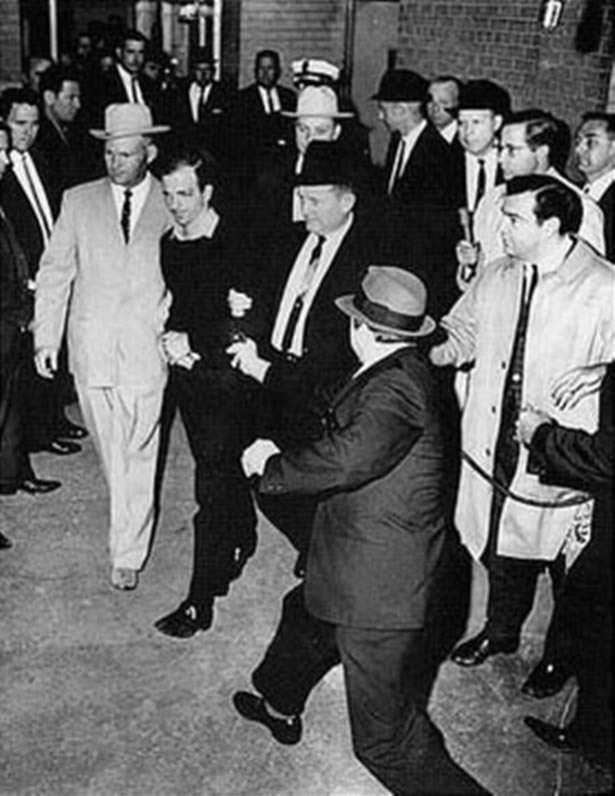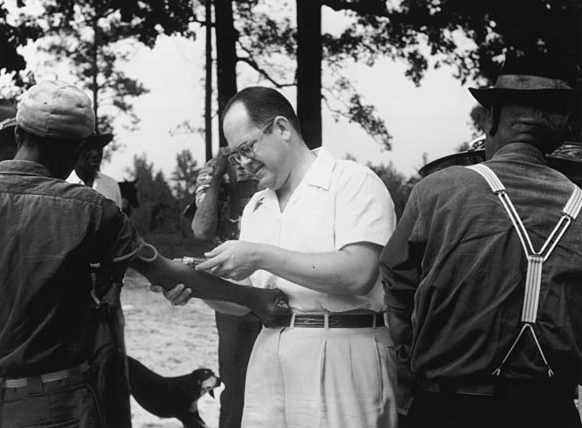
Conspiracy Theories
Conspiracy Theories
Fifty-one percent of Americans recently said a larger conspiracy was behind President Kennedy’s assassination—whether by the Mafia, the CIA, the Cubans, or Vice President Lyndon B. Johnson. Only 25 percent said the accused assassin Lee Harvey Oswald acted alone. A third of adults believed that a UFO crashed in Roswell, New Mexico in 1947, and nearly a quarter believe that the CIA deliberately spread crack cocaine in U.S. cities in the late twentieth century. Another quarter believe that the U.S. government knowingly allowed the 9/11 terrorist attacks.

At various points in American history, fears have arisen about a conspiracy against American liberty perpetrated by a particularly villainous group—the Illuminati (around the time of the American Revolution), the Masons, a fraternal order, in the 1820s and early 1830s, the Catholic Church in the 1830s and 1840s, the Slave Power in the 1830s, ‘40s, and ‘50s, the Money Power in the 1890s, and Communists in the 1920s and 1950s.
Do Americans believe in conspiracy theories? Many do. Roughly a third of the adult population believes that President Barack Obama was foreign born.
Nor is conspiratorial thinking combined to a specific subset of the population. Those on the political right and left are equally likely to believe in conspiracy theories. Those on the left are more likely to attribute conspiracies to wealthy elites and corporations, while those on the right are more likely to blame liberal elites and academics.
Belief in conspiracies cuts across lines of gender, age, race, income, political affiliation, educational level, and occupational status. Americans as diverse as auto manufacturer Henry Ford, writer Gore Vidal, and film director Oliver Stone have clung to conspiracy theories.
In general, conspiracy thinking assumes that there is a group that is acting secretly to usurp power and hide the truth at the expense of the common good. Such thinking is particularly likely to crop up during periods of uncertainty and fear: after the attacks on Pearl Harbor or the World Trade Center and Pentagon, for example.

Contributing to the prevalence of conspiracy thinking is the fact that there have indeed been real conspiracies in the past. The assassination of President Abraham Lincoln was the result of a conspiracy, as was that of Martin Luther King, Jr. The Watergate Affair during the Nixon administration, too, was the product of a conspiracy. The fact that the U.S. Public Health Service failed to treat black men with venereal disease during the notorious Tuskegee Syphilis Experiment led many to wonder whether AIDS had been deliberately unleashed by the government.
It seems doubtful that the assassination of President John F. Kennedy was the result of a conspiracy. But there is no doubt that high-level leadership at both the CIA and FBI were aware of the assassin, Lee Harvey Oswald, and hindered the investigation lest that knowledge become public and they be blamed for failing to prevent the assassination.
Conspiracy theories are tempting because they offer simple, unified explanations for events that are otherwise the product of chance or a convergence of complex developments. Rather than facing up to the complex roots of events or to the genuine inequalities in society, conspiracy theorists latch onto scapegoats or nefarious elites to explain why bad things happen.
